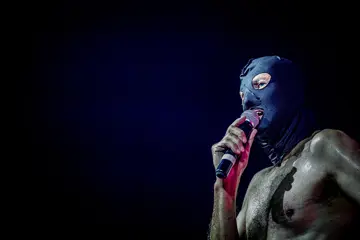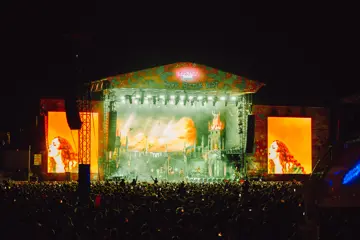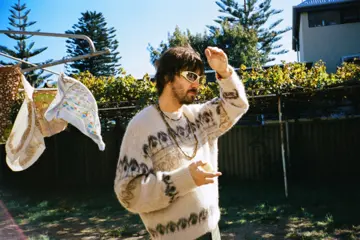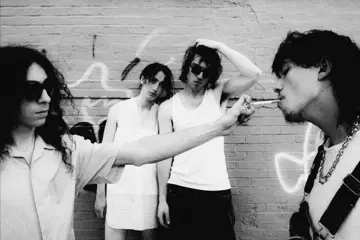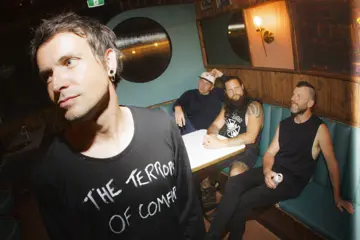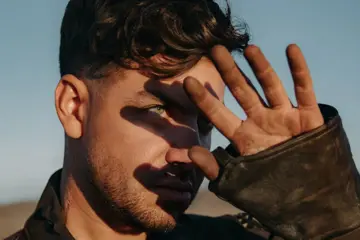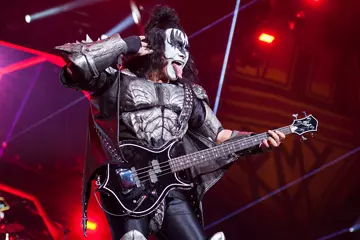It was February 2020 when multidisciplinary Oceanic arts collective FAMILI last performed a show.
15 months later, they were anticipated to return with We Take Back Our Mother Tongues, which promised to be a ‘reimagination’ of the 2020 live show and a powerful, healing performance by queer, transgender and Bla(c)k creative voices from across Australia.
15 artists of Pasifika, Aboriginal and Torres Strait Islander decent and LGBTQIA+ identities crafted a tapestry of live music, DJ sets, video projections and sculptural installations, to provide a performance of connection, movement and restoration.
Just a week before they were due to stage at Melbourne’s Arts House, Creative Director Ripley Kavara announced that it would, sadly be cancelled.
The team would have faced a number of challenges putting the show together, which had gone through numerous cancellations because of COVID. Kavara took an inspiring step in protecting FAMILI members’ wellbeing, many of whom reside in Naarm (Melbourne), experiencing the world’s longest lockdown.
That impact on the collective cannot be underestimated, as they navigate working in a post-pandemic performing arts world, whether it’s overcoming barriers to work and access or unpacking conversations around issues like climate change, as it plays out in reality, with the recent floods.
Don't miss a beat with our FREE daily newsletter
“The last two years has been incredibly hard on all the artists based in. I'm in Melbourne and I think we're still unpacking what that means,” Kavara says. “It's meant everything from not performing for two years to having mental, emotional and financial stress, losing like big sources of income, having family members or artists themselves who are immune-compromised or not able to get a vaccination for valid medical reasons that are not being recognised.”
 Pic by Gianna Rizzo
Pic by Gianna Rizzo
Kavara (of Papua New Guinean and Scottish decent), whose musical production influences include artists like Barkaa, Electric Fields, Blood Orange and Solange, works to create community-led spaces for performers and artists to tell stories through music.
FAMILI has provided a space “to connect with people who come from the same place. To hang out, spend time and feel I belong. I see so much of myself in these people's laughs and in the shape of their nose and eyes and skin.”
“This work is about connection, healing and naming a lot of these very intangible feelings that I think haunt many people who are mixed-race, part of the diaspora, displaced third culture kids, whose lands have been colonised, who have been displaced onto all the lands that have been colonised and then have to navigate being a settler.”
Inspired by contemporary genres like electronic, hip hop and new wave R&B genres, the project also celebrates traditional, Oceanic sounds and storytelling formats; mirroring the artists’ own complex experiences of culture and identity in diaspora.
“The most authentic thing we can do is sample the instruments that come from our homelands and weave these sounds and textures into these beats,” Kavara tells. “Our ancestors have been practicing these musical traditions for thousands of years so it’s key to make it accessible for our younger generations.”
Among the artists involved are Lebanese-Tongan-Fijian musician/performer/poet Lay the Mystic, filmmaker, radio broadcaster, DJ-musician and youth project worker Paul Gorrie, Trawlwoolway musician-curator-DJ Kalyani Mumtaz, who was previously part of experimental pop duo Willow Beats, Adelaide-raised music artist Lonelyspeck and West Papuan human rights activist Porobibi. Bella Waru, who works primarily through movement and voice, serves as musical Co-Director, while Mossy 333, a multi-disciplinary artist focused on painting, music, and performance, is Art Director.
Kavara approaches artists to join the collective intuitively. Like seeing Brisbane-based artist Vika Mana read poetry at the ‘Sisters Inside’ conference on prison abolition and women who experience incarceration, and inviting them to rap a verse on a Famili track that touches on such topics and ended up being “just fire”.
 Pic by Gianna Rizzo
Pic by Gianna Rizzo
This project also opened up a space to connect with conservative elders in the artists’ own communities, who have demonstrated support with performing welcomes at live shows as well as providing accessibility to native language.
“I find it quite hard to access because Papua New Guinea has 850 different tribal languages. Accessing a dictionary of my village’s language is really difficult. And then finding someone locally who speaks that language and then trying to be like, how do I learn this? it's just a work in progress.”
“To see these amazing, powerful performers singing in their local dialect here in Australia, I’m like, whoa, we need more of this! Take over.”
For Kavara, FAMILI is ‘a collective of Pacific and First Nation musicians and artists, making songs about identity, belonging, sovereignty, climate crisis, spirituality, colonisation and diaspora’.
“This is why the collective is important because it's about connection and culture. We're at the cross-section of living in metropolitan urban environments. We're also trying to understand, what is the sound of us now versus in the past? How do we draw these things together?”
Working on this project in current times also highlights the importance of supporting creatives like FAMILI in their unique, truth-telling messages and work.
“Pay artists. Pay them well. I want to see people getting out there and supporting the arts. Obviously, artists haven't been essential workers or whatever, but I think everyone was engaging in the arts to get through lockdown, you know, in some form or another.”
“In all the chaos ensuing around the world today, Music, art and empowering our voices is as important as ever because all creativity channels provide strong narratives and healing to many. People look to this stuff to feel connected.”
“When I think about the future of the collective, we have to do this and this is really important. So, I think the collective is going to go on and continue.”





